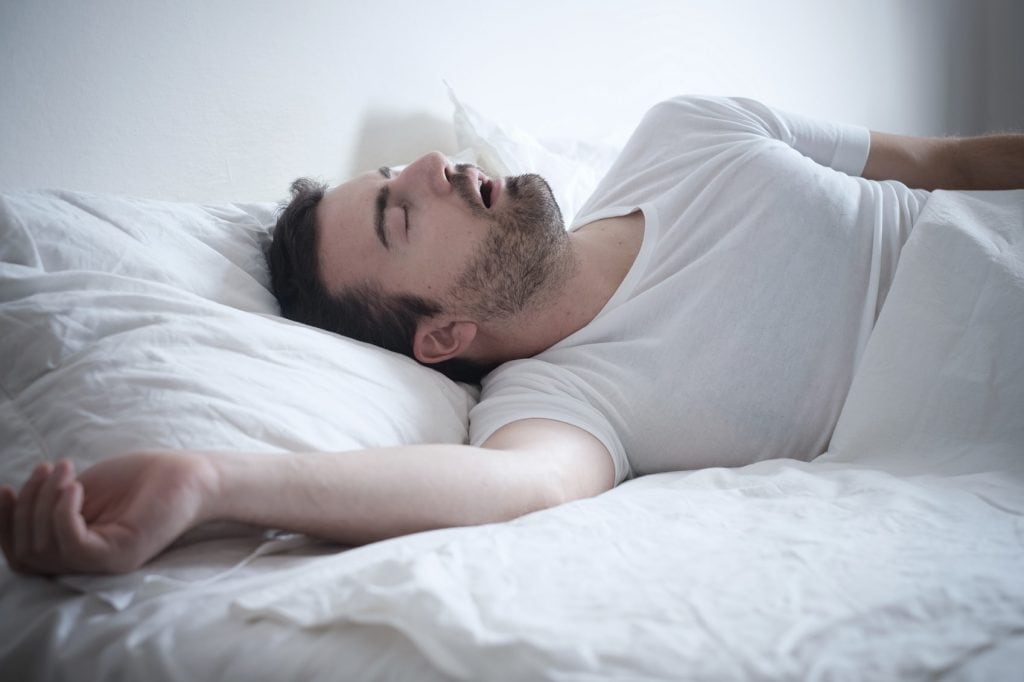Snoring Myths

Is it normal to wake up during the night?
Waking up at night can be normal; it’s why and how often that can signal a problem. Wake-ups at night that come from loud noises or bathroom trips are typically no cause for concern. If you’re waking up due to your snoring or catching your breath, it’s a sign there are other medical issues going on that need attention.
Can snoring be harmless?
Occasional snoring can be harmless. Nightly snoring can be a sign of sleep apnea. It’s important to see your doctor if you suspect sleep apnea is a possibility.
Sleep apnea is characterized by breathing pauses that decrease or completely block airflow. Over time, untreated sleep apnea can cause medical complications, such as an increased risk of cardiovascular disease.
Does lying in bed count as sleeping?
Lying in bed does not count as sleeping. Lying in bed is resting, which is different physiologically from sleeping. When you sleep, your consciousness is mostly suspended. When you rest, your consciousness is active.
Has anyone ever died from sleep apnea?
There is a mechanism in our bodies that jolts us when we fail to take a breath. This helps prevent a person with sleep apnea to simply stop breathing when sleeping. It’s the complications that come from sleep apnea that can cause death.
When sleep apnea leads to cardiovascular disease, or cardiovascular disease already exists, the risk for fatal heart attack or stroke is high. The strain of repeated pauses and gasps for breath during the night, happening for long periods of time when left untreated, can lead to fatal complications.
Is it normal to wake up at night to pee?
It is normal to get up about once a night to pee. If you have to get up two or more times a night (nocturia) it is advisable to evaluate your fluid intake before bed. If reducing your fluids before bedtime doesn’t help, your nocturia may be caused by obstructive sleep apnea or other factors. See your doctor for an evaluation.
Is sleep apnea just snoring?
Sleep apnea is not just snoring. Snoring is the vibrations caused when air passes through the airways and the soft palate vibrates. Sleep apnea is when the air flow is partially or completely blocked that results in gasping.
Does sleep apnea happen every night?
Yes, if you have sleep apnea, it will happen every time you’re sleeping.
Is sleeping with the TV on bad?
Sleeping with the TV on can negatively affect your sleep quality. The light exposure can inhibit the production of melatonin, the hormone your body produces to aid restful sleep. Light and sound from the TV stimulates you at a time when a more quiet, dark and non-stimulating environment is needed. The constant light and sound can prevent you from reaching deeper stages of sleep.
Is snoring a sign of deep sleep?
No, snoring is not a sign of deep sleep. People can snore at all stages of sleep, even when they're half asleep.
Can treating sleep apnea cause weight loss?
Sleep apnea is tied to weight gain when left untreated. Treating your sleep apnea may result in weight loss.
If you’re experiencing snoring or sleep apnea, make an appointment today with Dr. Levin at eos dental sleep. We can help find the best treatment to improve your health, including managing your snoring or sleep apnea.
